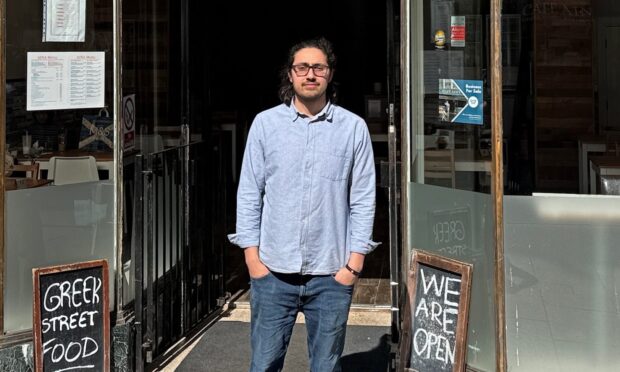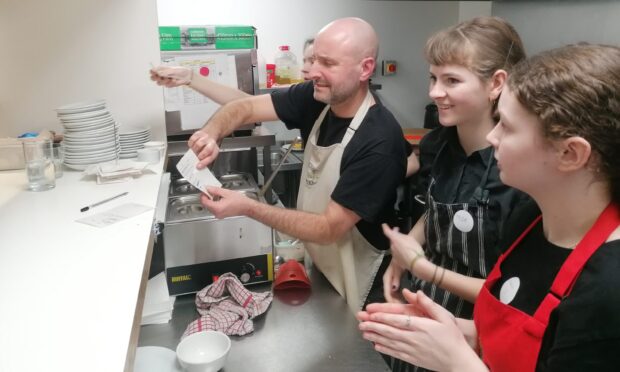Given the way his team collapsed in the final 20 minutes at Alloa on Saturday to turn what should have been victory into a shock defeat, Dundee United fans could be forgiven for thinking Robbie Neilson’s brutal assessment of his squad was pure frustration.
However, as he labelled it not good enough to get back to the Premiership, this was no case of a manager throwing his toys out the pram.
Angry as he was over poor game management that allowed the part-time Wasps two late goals to turn what had been a one-sided affair completely on its head, Neilson’s words were measured.
And they were the result of a clinical assessment of playing resources that started even before he was confirmed as Csaba Laszlo’s successor back in October.
As he looked to return to management following an unhappy spell with MK Dons, the former Hearts boss was clear in his mind what kind of job he was willing to take. And the ones he wouldn’t.
In the summer he was offered the chance to take on Premiership newcomers St Mirren but after talks with the Paisley club decided their aspirations were unrealistic, meaning his chances of being regarded a success were slim.
Other job offers came but for various reasons were met with a polite “no thanks”.
As out of work managers have to do, Neilson made sure he was aware of what other jobs could come up and after another failure to get promotion last term was followed by a sluggish start to this campaign, the one at Tannadice fell into that category.
That meant when United contacted him after Laszlo’s departure, he’d already done some homework and formed an opinion.
It was that this was a club that clearly had the potential to get him back working at the top end of the Premiership as he’d done during his time at Hearts but it’s clear now Neilson also felt to do that, he would have to perform surgery on the squad.
Although his time in charge started with the traditional new manager bounce and United went on a run of five wins and a draw in his first six, he was not fooled.
The first sign of the fragility he knew existed came when Ayr blew his team away 5-0 at Tannadice at the end of November.
The four games since have produced just one win and seen old flaws resurface, not least the inability to see out games.
Against Morton and Alloa, United were ahead late on but could not see the game out and even when they beat Falkirk at Tannadice, a nervy final few minutes had to be endured as a late penalty was conceded.
The old problem of failing to turn possession into goals also resurfaced, particularly in the draw at Inverness and last Saturday when United dominated the ball but only had two goals and a few clear-cut chances to show for it.
It is, though, the failure to make the right decisions at key moments that the manager has identified as the major problem.
That was apparent at the Indodrill Stadium when, having battled so hard to get ahead, gaps were left and poor choices on the ball made to allow Alloa their unexpected win.
Having played in a Hearts side, and for a short spell one at United, that was adept at seeing out tight games in pressure situations, Neilson knows the value of that ability.
He knows if they are to resurrect their promotion challenge, that knack of making the right decisions when the heat is on will be just as valuable as their technical ability on the ball.
It’s why changes are on the way at United.










